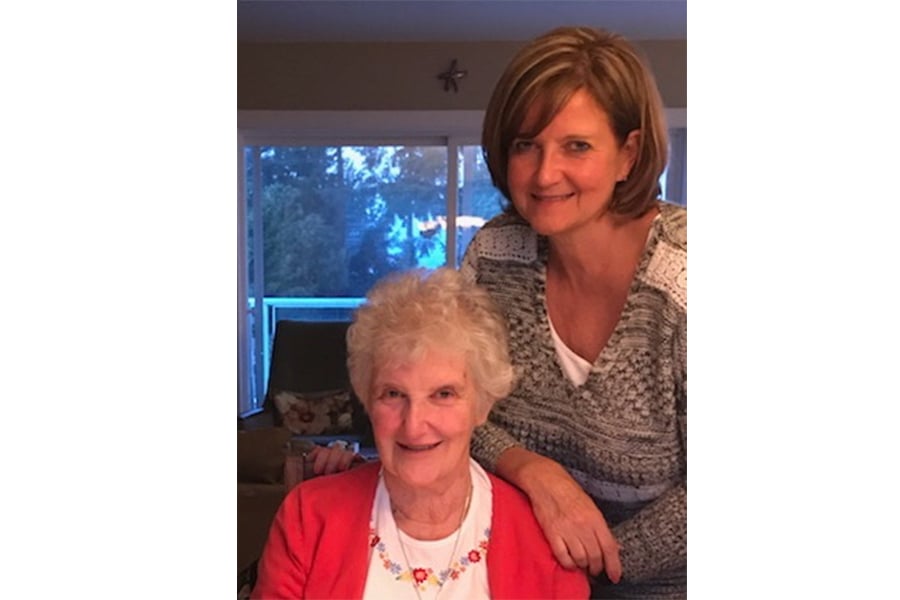Long-term care and assisted living residents will soon be able to see their families and loved ones for longer and more frequent visits as the province announced a massive easing of pandemic-related visitation rules today.
Mass vaccinations of the approximately 70,000 residents and staff in B.C. have rapidly reduced the number of outbreaks in care homes and made it possible to allow more visitors and socializing among residents, provincial health officer Dr. Bonnie Henry said.
“It is time for us to safely move to having that important connection with our loved ones in long-term care, and we will do that together,” said Henry.
But after more than a year of isolation and grief for residents and loved ones alike, some family members wonder how much will change when implementation is left in the hands of care home operators.
Previously, each resident was allowed one designated essential visitor and one social visitor, whose visits were limited in frequency and length by rules that varied by facility.
Starting April 1, “all residents will have regular, frequent and routine opportunities for social visitation in long-term care and assisted living,” Henry said.
Visits of at least 60 minutes will be allowed with multiple social visitors. Up to two adults and one child will be allowed to visit and can meet in residents’ rooms without staff supervision.
Essential visitors, designated to help with care, will be allowed to visit more frequently and for longer periods.
Hugs and handholding are now permitted, though masks and frequent hand washing are still required. And residents will be able to go on outings outside the facility without being required to isolate upon return.
Residents will also be able to eat together and socialize more freely without having to physically distance during activities.
“I am very, very pleased we can make some changes where we can affect people’s quality of life,” said Henry.
Families concerned about their loved one’s physical and mental well-being have been calling for more visits since the pandemic began, and particularly as cases dropped during the summer.
And in November, B.C.’s Seniors Advocate Isobel Mackenzie recommended rules be eased in light of their “devastating” consequences on residents’ emotional and physical health.
Jeanette Harper, who was granted essential visitor status after a lengthy appeal process with her mother’s long-term care facility in Nanaimo, says the changes will mean her mother Marguerite Bell can see her grandchildren and great-grandson for the first time in a year.
“I can’t wait to just take her out for a drive and for lunch,” said Harper today. “She loves fish and chips and watching the ferries come in on the water at Departure Bay, so I’ll take her out there to just feel the fresh air.”
But Harper is skeptical the new guidance will be followed uniformly by all care homes in the province after she and many others had to fight to be designated as essential visitors.
“I think a lot of us are just kind of nervous, because it’s an expectation, she didn’t mandate it or make it a rule,” said Harper. “We know how much inconsistency there has been over the last year, so we are a little nervous that each care home is going to implement them differently.”
It would have been great to see the province mandate at least one visitor for every resident as families have been advocating the last year, Harper noted. “The care home is still going to have a lot of control.”
Henry said the province expects the new guidelines, developed in consultation with care home operators, will be followed. People can still appeal decisions through her office or the Patient Care Quality Office for their health authority.
As the province’s cases continue to surge and community transmission remains high, Henry stressed the move to ease restrictions is not without risks.
Visitors will still be screened for symptoms, and asked to wear a mask and wash their hands frequently to limit virus spread.
Unlike essential visitors, who were prioritized for shots alongside residents and staff in the province’s first vaccination stage, Henry said social visitors will not receive priority vaccinations.
“It is likely we are going to have more outbreaks in care homes now that we’re allowing more people to come into those care homes,” said Henry. “But we are at a point where the benefits of having those social connections and interactions outweigh the risks, and we know we can manage those risks with the vast majority of residents and staff now being protected with immunization.”
The province has seen two outbreaks at care homes where a majority of staff and residents were immunized, but so far no deaths from those outbreaks, she said.
Harper said the changes are long overdue despite the risks.
“Having vaccinated all the people in long-term care, they knew they couldn’t keep them locked up,” she said. “They shouldn’t have taken this long.” ![]()
Read more: Coronavirus
















Tyee Commenting Guidelines
Comments that violate guidelines risk being deleted, and violations may result in a temporary or permanent user ban. Maintain the spirit of good conversation to stay in the discussion.
*Please note The Tyee is not a forum for spreading misinformation about COVID-19, denying its existence or minimizing its risk to public health.
Do:
Do not: